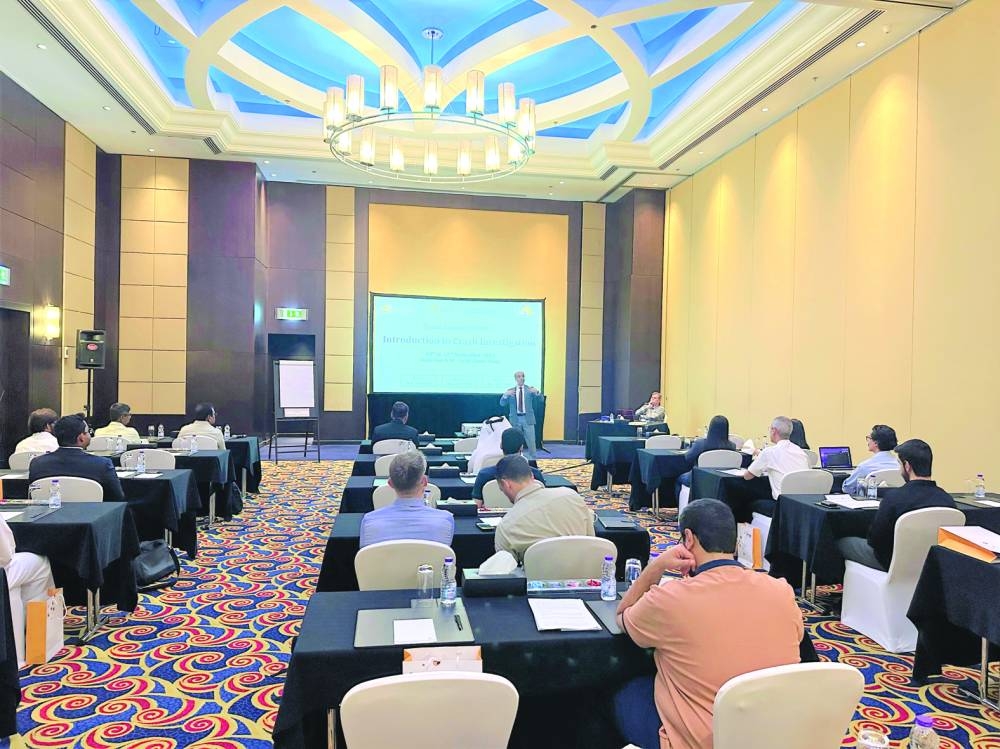The Qatar Transportation and Traffic Safety Centre (QTTSC) at Qatar University's (QU) College of Engineering (CENG) recently hosted a professional training workshop on 'Introduction to Crash Investigation' in collaboration with the International Road Federation (IRF).
The event aimed to present the principles and techniques of post-crash investigation and to explain in depth how on-scene investigation and reporting are performed as a guideline for real-life on-scene investigations. It brought together experts from QTTSC, Qatar Ministry of Interior (General Directorate of Traffic), the Public Works Authority (Ashghal), Neom Company from Saudi Arabia, the insurance sector in India, as well as graduate students from QU. They exchanged policies, strategies, and technologies to improve traffic safety conditions and overcome road safety challenges in Qatar.
The workshop was delivered by Benjamin Van Rooyen, a lecturer at Lyceum College in South Africa, where discussions focused on the classification, terminology, factors, and phases of traffic crashes, as well as the principles of the on-scene investigation, crash evidence, and accident report.
Participants were introduced to the criteria to build a post-crash investigation by taking evidence from the crash’s scene and the people and vehicles involved. They were also briefed on the importance of identifying the causes of car crashes to better understand their complexity and prevent them by reducing one or more of their causes.
CENG dean Dr Khaled Kamal Naji said, “This event comes in line with CENG’s efforts to raise community awareness of the importance of traffic safety. Hundreds of road crashes occur on an annual basis due to the failure of drivers to behave or react as expected. This training helps delegates investigate crashes in a well-planned and systematic manner based on international practices to identify causes and influences. Road safety professionals need to know the basics of crash investigation in order to introduce measures to prevent similar crashes in the future.”
Dr Shimaa Ali al-Quradaghi, director of QTTSC, clarified that this course targets traffic accident investigators from the police, engineers, and experts in the field of road safety. “It aims to disseminate concepts and post-accident investigation procedures, including essential scientific and practical skills, drawing from distinguished international expertise in this field. The course also seeks to emphasize the importance of having precise and systematic accident investigations to identify the true causes of these incidents,” she added.

